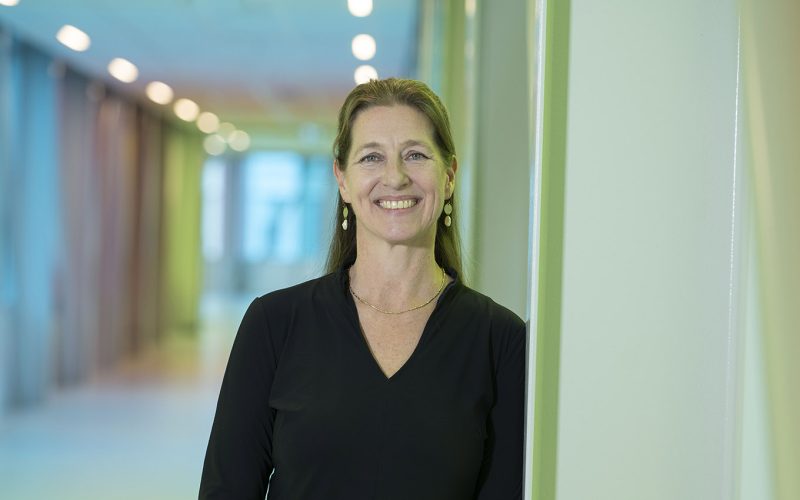How do we ensure that children remain optimally hormonally balanced when dealing with cancer and its treatment? This question is central to Hanneke van Santen’s work. She has been appointed professor of paediatric endocrinology with a focus on the hormonal consequences in children with cancer from 15 December 2024. ‘To be hormonally balanced as a child is essential for normal growth and development. We can often treat a hormonal deficiency well, so it is important to be aware of this and screen for it early.’
Of all the possible hormonal consequences, ‘hypothalamic syndrome’ is the most serious. Hypothalamic syndrome can result from a tumour in (near) the hormone centre in the brain. It has a major impact on quality of life. The condition is fortunately rare, so to increase knowledge, researchers are seeking international cooperation, led by Hanneke van Santen. Together with colleagues from the Princess Máxima Centre for Paediatric Oncology and the Wilhelmina Children’s Hospital, she has set up a multidisciplinary team with to guide children with hypothalamic syndrome.
Here, paediatric endocrinologist, psychologist, child psychiatrist, dietician, physiotherapist, neurologist, rehabilitation doctor and oncologist work closely together. Together with her group, Hanneke develops new tools to better monitor hormonal imbalance, but also to prevent hypothalamic damage (new systemic therapy of these tumours) as well as innovative therapies for hypothalamic damage. She also focuses on children with thyroid cancer. This is another rare disease in childhood, making European cooperation essential. For this purpose, she has established a European registry with which joint European cohort studies can now be set up. And finally, she focuses on the more general care of children with cancer. Hanneke: ‘Hormones are like a mirror, they show how you are doing physically. If we are more aware of this, we can signal earlier if something is wrong. Hormones sometimes indicate early on that a child is dealing with an infection or sepsis, for example, by a rise in cortisol or glucose or a drop in thyroid hormone levels.
‘In 1999, I started researching the hormonal consequences of childhood cancer or cancer treatment. We now know that these consequences occur even in 60 per cent of children and adults at the LATER poli,’ says Hanneke van Santen, paediatric endocrinologist at the WKZ and the Prinses Máxima Centre and active within the Child Health and Cancer spearheads. ‘By detecting hormonal disturbances early and treating them in innovative ways, we prevent children from developing problems. Consequences of hormone deficiency can include children becoming very fat, chronically tired, entering puberty too early or not at all, or remaining very small. Preventing these consequences has a positive impact on their quality of life. Going to school is more successful again, they get along better socially and make friends. Being hormonally balanced improves not only physical health but also mental health, which is extremely important for proper development, especially in childhood.’
‘As a paediatric endocrinologist in Utrecht, I focus on improving patient care both at the Prinses Máxima Centre and the WKZ ’, Hanneke continued. She also chairs the Dutch Society of Paediatric Docrinologists (NvK, Paediatric Docrinology Section), the European Working Group for Children with Craniopharyngioma (SIOPe) and the European Guidelines for Thyroid Cancer in Children and the Late Effects of Childhood Cancer International Guideline Harmonisation Groups (IGHG) ‘We are thus developing global guidelines to treat these rare conditions optimally.’
‘As with many rare conditions, in thyroid cancer and hypothalamic syndrome, it helps to set up international studies. Together, we can better investigate which approaches can help these patients,’ Hanneke said. ‘A lot is happening internationally but also simply here at the Science Park. Within the UMC Utrecht, the WKZ and Prinses Máxima Centre, we share more and more knowledge and experience regarding this special group of children and their parents. I cross the bridge from one organisation to another several times a day and I hope this chair will lead to many more collaborations and acceleration in this field.’
